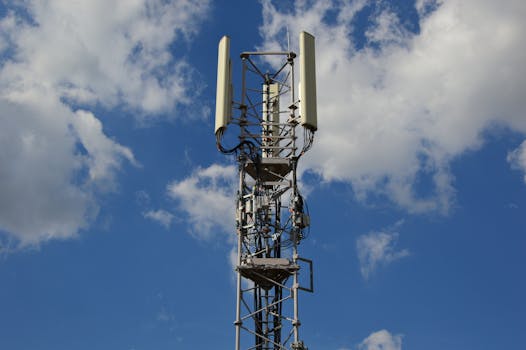
GEO Satellites: Introduction to Geostationary Orbit
GEO satellites, or Geostationary Orbit satellites, are a type of satellite that orbits the Earth at an altitude of approximately 36,000 kilometers above the equator. At this height, the satellite’s orbital period matches the Earth’s rotational period, allowing it to remain stationary in the sky relative to a fixed point on the Earth’s surface. This unique characteristic makes GEO satellites ideal for a variety of applications, including telecommunications, weather forecasting, and Earth observation.
The concept of GEO satellites was first proposed by scientist Arthur C. Clarke in 1945, and the first GEO satellite, Syncom 2, was launched in 1963. Since then, numerous GEO satellites have been launched, providing a wide range of services to people around the world. GEO satellites are used for television broadcasting, internet connectivity, mobile communications, weather forecasting, and Earth observation, among other applications.
How GEO Satellites Work
GEO satellites work by transmitting and receiving signals to and from Earth-based stations. The satellite receives a signal from an Earth-based station, amplifies it, and then retransmits it back to Earth, allowing the signal to be received by a wider audience. This process is made possible by the satellite’s transponders, which are responsible for receiving, amplifying, and retransmitting the signals. The signals transmitted by GEO satellites are typically in the C-band, Ku-band, or Ka-band frequency ranges.
GEO satellites are typically launched into space using a rocket, and once they reach their desired altitude, they deploy their solar panels and antennas. The satellite’s propulsion system is used to make any necessary adjustments to its orbit, ensuring that it remains stationary in the sky. The satellite’s power is provided by its solar panels, which convert sunlight into electricity.
Applications of GEO Satellites
GEO satellites have a wide range of applications, including television broadcasting, internet connectivity, mobile communications, weather forecasting, and Earth observation. Television broadcasting is one of the most common applications of GEO satellites, with many television channels around the world relying on these satellites to transmit their signals. Internet connectivity is another major application of GEO satellites, with many internet service providers using these satellites to provide broadband internet access to remote and underserved areas.
Mobile communications is also a significant application of GEO satellites, with many mobile network operators using these satellites to provide coverage in areas where terrestrial networks are not available. Weather forecasting is another important application of GEO satellites, with these satellites providing critical data on weather patterns and storms. Earth observation is also a major application of GEO satellites, with these satellites providing valuable data on the Earth’s climate, oceans, and land surfaces.
Advantages and Challenges of GEO Satellites
GEO satellites have several advantages, including their ability to provide global coverage, their high signal strength, and their ability to operate in remote and underserved areas. However, GEO satellites also have several challenges, including their high launch costs, their limited bandwidth, and their vulnerability to interference and jamming.
Despite these challenges, GEO satellites continue to play a vital role in modern telecommunications, providing a wide range of services to people around the world. As technology continues to evolve, it is likely that GEO satellites will become even more important, providing new and innovative services to meet the growing demands of a connected world.



